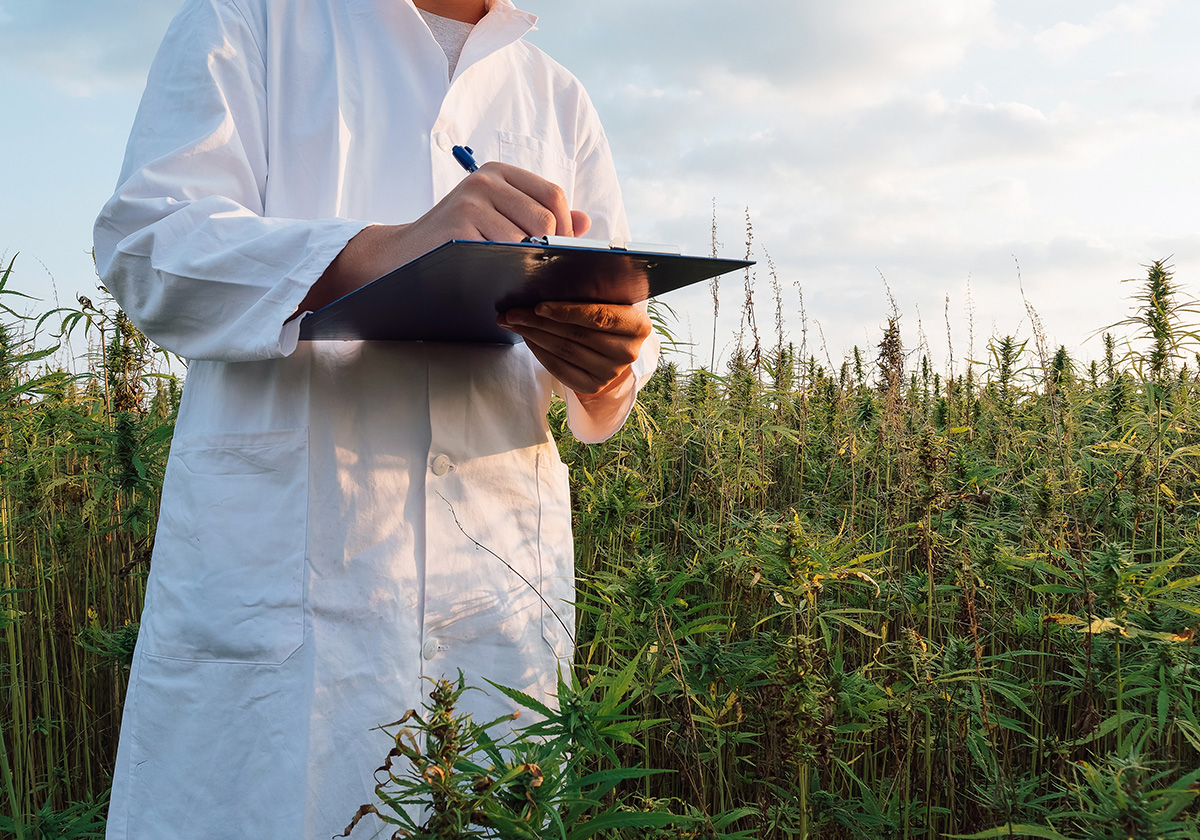Splashy cannabis headlines are a dime a dozen; hemp, on the other hand, get’s very little time in the spotlight. But fear not! We’ve got the hard-hitting hemp story you’ve been waiting for.
New rules
The United States Department of Agriculture (USDA) recently announced a big change for the hemp industry. By year-end 2023, all domestically produced hemp will require mandatory testing at Drug Enforcement Administration (DEA) registered laboratories.1
The decision has been a long time coming. While initially set to go into effect at the beginning of 2023, the USDA held off on implementing the rule, giving additional time to increase the testing capacity of the DEA-certified laboratories. According to the department, the “USDA is concerned there will be inadequate hemp laboratory testing capacity for the 2023 growing season, which will hinder the growth of a domestic hemp market at this nascent stage.” There are currently 85 testing centers across 28 states. You can view the complete list of laboratories here.
Pushback from members of the hemp industry and lawmakers has cropped up in recent years. Many view the rule as an unnecessary burden to law-abiding cultivators and have voiced concerns that there aren’t enough labs to handle the volume.
Rep. Chellie Pingree (D-ME) has been one of the more outspoken critics of the rule. "There are insufficient testing facilities. Right here in Maine, we don't have one at all—and there's two that cover all of New England."2 Jonathan Miller, General Counsel for the U.S. Hemp Roundtable, stated that, “there’s simply no need for DEA to be in the hemp business, and we strongly support Rep. Chellie Pingree’s legislative efforts to eliminate the DEA-registration requirement.”3
Ultimately, regulating the industrial hemp market must exist in one form or another. The industry has exploded since the passing of the 2018 Farm Bill, hitting an estimated worth of $824 million in 2021, according to the USDA’s National Agricultural Statistics Service. With all that product, mandatory testing ensures that the fine line between industrial-grade, non-psychoactive hemp, and its wackier cousin, marijuana, is not crossed. Read our article to learn more about the legal definitions of hemp, as laid out in the 2018 Farm Bill.4
The testing process
The basic principle behind hemp testing is to measure the total delta 9 tetrahydrocannabinol (commonly referred to as THC) concentration present within collected cannabis samples. THC concentration in the plant material defines both hemp and marijuana as distinct cannabis categories: hemp has 0.3% THC or less, and marijuana has more than 0.3% THC.5
The testing process to determine THC levels requires precise scientific execution. Samples are dried, ground, extracted, and chemically analyzed. The USDA currently outlines testing guidelines and methods under their Laboratory Testing Guidelines U.S. Domestic Hemp Production Program.
Test results that come back in excess of 0.3% THC are designated higher than the acceptable level. In such cases, the producer is notified alongside the State, Tribal, or Federal regulatory licensing body.
The upcoming change, taking effect December 31, 2023, will require all current and future labs to register directly with the DEA to become certified. In cases where test results exceed the acceptable level, the DEA will be notified.
Into the future
The novel nature of the hemp industry, barely half a decade old, means that growing pains are to be expected.
As lawmakers and regulators work to create a framework for this industry, it's important that they consider the needs of farmers, businesses, and consumers alike. At the same time, regulation keeps everyone safe, from the farmers that grow the product to the companies that insure them.
Hemp can affect risks related to multiple coverage lines, so knowing your concentration of risk is especially important.
HempGuard makes it easy to understand how much hemp-related risk you’re carrying and use that information to make better underwriting decisions.
[3] Hemp Supporter, https://hempsupporter.com/news/usda-delays-dea-registered-lab-requirement-for-hemp-testing/
[4] USDA, https://www.nass.usda.gov/Newsroomwhopping2022/02-17-2022.php
[5] Healthline, https://www.healthline.com/health/hemp-vs-marijuana







